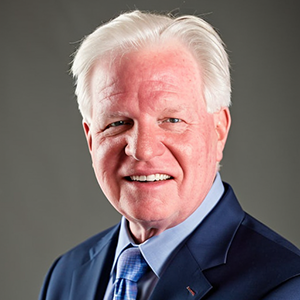- Academics
- Students
- Research
-
Centers & Institutes
- Centers & Institutes Overview
- Center for Addiction and Mental Health Research
- Center for Public Safety Research
- Center for Public Health Modeling and Response
- Center for Research on Health Disparities
- Clemson Rural Health
- Clinical Learning Research Center
- Human Factors Institute
- Institute for Engaged Aging
- Institute for Family and Neighborhood Life
- Institute for Parks
- Outdoor Lab
- Social Media Listening Center
- About
- Engagement
Leadership
Leslie Hossfeld, Ph.D.
Dean
lhossfe@clemson.edu
Dean Hossfeld serves as the chief academic, fiscal and administrative officer for the College of Behavioral, Social and Health Sciences that includes seven departments, 15 bachelor’s programs, 12 concentrations, 13 master’s programs, 10 doctoral programs, nine research centers and institutes, and a research enterprise with more than $88 million in grant and contract awards, $25 million in endowments, and an operating budget of over $80 million. She guides the work of more than 400 faculty and 120 staff who serve over 4,800 students. Dr. Hossfeld is trained in rural sociology from North Carolina State University with experience examining rural poverty and economic restructuring. Her research expertise includes community and economic development, agrarianism, food and nutrition security, and rural health access. She has delivered more than 150 research presentations at national and international conferences and published over 80 peer-reviewed scholarly works and over $10 million in research grants and contracts. She has made two presentations to the U.S. Congress and one to the North Carolina legislature on job loss and rural economic decline. Dean Hossfeld has served the discipline in national roles as co-chair of the American Sociological Association Task Force on Public Sociology, the 78th president of the Southern Sociological Society, chair of the American Sociological Association Section on Sociological Practice and Public Sociology, Executive Board member of the Mississippi Food Policy Council, and a member of the Executive Council of the North Carolina Sociological Association (NCSA), which awarded her a lifetime achievement award in February 2019. Dr. Hossfeld has also served as co-chair of the USDA SERA-47 multi-state initiative, Strengthening the Southern Region Extension and Research System to Support Local and Regional Food Needs and Priorities in 13 states in the southern region. Prior to joining Clemson, Dean Hossfeld was head of the Department of Sociology, Criminology and Social Work at Mississippi State University and Social Science Research Center Fellow from 2015-2018, and chair of the Department of Sociology and Criminology at the University of North Carolina Wilmington from 2012-2015.She has developed economic recovery projects for rural North Carolina counties and food sovereignty projects in the Mississippi Delta using health as an economic development strategy. Dr. Hossfeld has helped secure over $6 million in external grants and contracts to support the Building Healthy Communities and Clemson Rural Health initiatives at Clemson University. In 2023, she received the South Carolina Sociological Association Excellence in Scholarship Award, and in 2024, the Clemson University Research, Scholarship and Artistic Achievement Award (URSAAA) for annual expenditures exceeding $1 million.
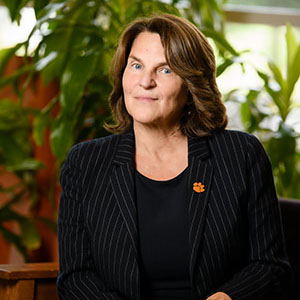
Tracy Kelly
Director of Operations
tk@clemson.edu
As CBSHS director of operations, Tracy Kelly serves as strategic advisor and counsel to the dean and provides operational leadership for CBSHS. Tracy’s duties are college-wide and include assisting the dean with developing, communicating, executing and sustaining College initiatives; assuming day-to-day responsibility for projects and multi-faceted tasks; creating and maintaining cross-departmental/unit relationships at the college and University levels as well as community stakeholders and donors. In addition, Ms. Kelly handles the Dean’s schedule, as well as maintains a full portfolio of tenure, promotion, reappointment workflow, and serves as space manager for the college. Tracy has 15 years of experience in higher education and has worked in the Dean’s office her entire career. She is a graduate of the Clemson University President’s Leadership Institute.
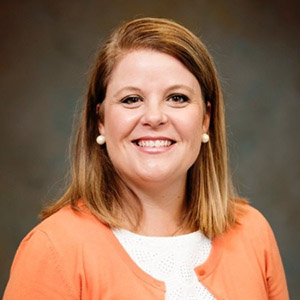
Stefan Bock
Director of Financial Strategic Operations
sbock@clemson.edu
As director of financial strategic operations, Stefan Bock serves as strategic financial advisor for CBSHS. He works with the dean and leadership team to develop strategic fiscal plans for the College and oversees financial management and business operations for each of the College's seven academic departments through supervision of the CBSHS Business Office. Bock has worked in various financial roles in CBSHS since 2018 and served as business officer for the College from 2021-2024.
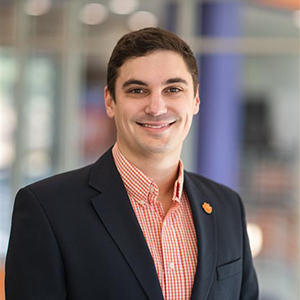
Denise Anderson, Ph.D.
Associate Dean for Undergraduate Studies, Faculty Success & Well-Being
dander2@clemson.edu
As associate dean for undergraduate studies, faculty success and well-being, Anderson is responsible for undergraduate student success, including first year student retention and six-year graduation rates. She is the lead for all student engagement initiatives, including the College's student advisory board, curriculum support, advising and strengthening teaching and learning methods, among others. In addition, Anderson is responsible for supporting faculty retention and development as well as providing support to various faculty processes, including honors and awards; tenure, promotion and reappointment; and coordination of faculty governance within the College. With an increased University emphasis on well-being, Anderson is the lead for initiatives within the College that focus on the eight pillars of well-being. As a professor in the Department of Parks, Recreation and Tourism Management, Anderson has served as a departmental undergraduate concentration coordinator and graduate program coordinator as well as a two-year fellow in the President’s Office. Prior to Clemson, she served on the faculty of the University of North Carolina at Greensboro. She holds a Bachelor of Arts in English from Illinois Wesleyan University, a master’s degree in sport management from Eastern Illinois University, and a Ph.D. in leisure behavior from the University of Illinois, Urbana-Champaign.

Bryan Miller, Ph.D.
Associate Dean for Research
BLM2@clemson.edu
Bryan Lee Miller is the associate dean of research and graduate studies (ADR) and professor in the Department of Sociology, Anthropology and Criminal Justice at Clemson University. He earned his B.S. and M.S. degrees in Sociology from Virginia Tech and his Ph.D. in Criminology, Law and Society from the University of Florida. Prior to coming to Clemson, he served as an assistant and associate professor in the Department of Criminal Justice and Criminology and a Research Affiliate for the Rural Health Research Institute (RHRI) at Georgia Southern University. His work has evaluated drug abuse, probation practices, offender reentry, deviant peers, and drug treatment. He has worked on projects funded by the United States Department of Justice (DOJ) to reduce the number of individuals with mental illnesses and co-occurring disorders in jail, evaluate treatment courts, design law enforcement led initiatives to respond to individuals with mental illnesses, and support justice led programs to implement evidence-based practices to reduce substance abuse. He has authored over 60 peer-reviewed articles as well as the books Emerging Trends in Drug Use and Distribution (2014, Springer) and Marijuana in America (2022, ABC-CLIO). He is the Founding Director of the Clemson University Center for Criminal Justice and Social Research (CJSR), served as the 49th President of the Southern Criminal Justice Association, past Chair of the Drug and Alcohol Research Section of the Academy of Criminal Justice Sciences, and is an Associate Editor of the American Journal of Criminal Justice. He was a 2018-2019 Fulbright Scholar at Tampere University, Finland, a recipient of the 2019 Clemson University Research, Scholarship and Artistic Achievement Award, a recipient of the 2022 Academy of Criminal Justice Sciences Outstanding Mentor Award, and recipient of the 2022 College of Behavioral, Social and Health Sciences Award for Excellence in Research - Senior Scholar.
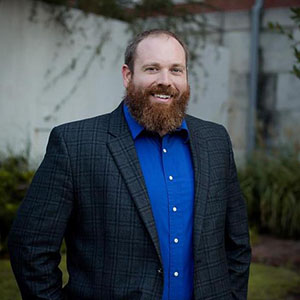
Lior Rennert, Ph.D.
Associate Dean for Health Sciences
liorr@clemson.edu
Dr. Rennert is the associate dean for health sciences and an associate professor of Biostatistics in the Department of Public Health Sciences. He is also the founding director for the Center for Public Health Modeling and Response. Dr. Rennert received his PhD degree in Biostatistics from the University of Pennsylvania’s Pearlman School of Medicine. He is an NIH and NSF-funded researcher, where he works closely with collaborators from Prisma Health and Clemson University. His work focuses on development and application of models to guide health-related decision making. His work has led to over 60 peer-reviewed publications in top scientific and medical journals, including lead author publication in the Lancet and Nature journal families. Dr. Rennert’s NIH R01 focuses on development of an epidemiological modeling framework to identify communities at high-risk for opioid-use disorder, HCV, HIV, and respiratory infectious diseases, including Covid-19. The ultimate goal of this project is to develop a toolkit to help inform decision making for resource allocation to medically underserved and at-risk communities.
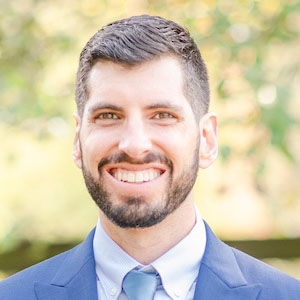
Joel Williams, MPH, Ph.D.
Associate Dean for Graduate Studies
joel2@clemson.edu
Dr. Williams is the associate dean for graduate studies and an associate professor in the Department of Public Health Sciences. He received his MPH and PhD degrees in Health Promotion, Education and Behavior from the University of University of South Carolina’s Arnold School of Public Health. Dr. Williams’ area of expertise is the implementation and evaluation of interventions for health promotion and disease prevention in clinical and community settings. He has worked on research projects funded by NIH, CDC, USDA/NIFA, U.S. Department of Defense, state agencies, and private foundations. These projects have primarily focused on physical activity and eating behaviors, and chronic disease self-management. His current research projects focus on individual and community-based physical activity promotion. Dr. Williams has over 10 years of experience in developing, implementing and evaluating graduate programs through departmental, college and University curriculum committee service, as well as leading departmental undergraduate and graduate program assessment and accreditation.
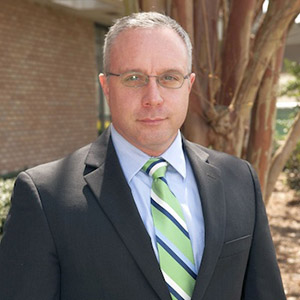
Ed Bowers, Ph.D.
Director of Assessment and Engagement
Professor of Parks, Recreation and Tourism Management
edmondb@clemson.edu
Dr. Bowers is the CBSHS Director of Assessment and Engagement and is responsible for working with college leadership to direct and oversee all assessment and engagement activities for the college. Dr. Bowers oversees the operationalization of Clemson University’s bold strategic plan, Clemson Elevate, by expanding the College’s framework to measure engagement, service and outreach through its continual initiatives of building healthy communities. Dr. Bowers is also a professor of Youth Development Leadership at Clemson University, receiving both B.S. and M.Ed. degrees from the University of Notre Dame and a Ph.D. in Applied Developmental and Educational Psychology from Boston College. Prior to Clemson, he served as a post-doctoral fellow and research assistant professor in the Institute for Applied Research in Youth Development (IARYD) at Tufts University. Dr. Bowers' primary research interest is on the influence of youth-adult relationships (e.g., with mentors, coaches, teachers, youth leaders) in promoting healthy and positive development in young people.
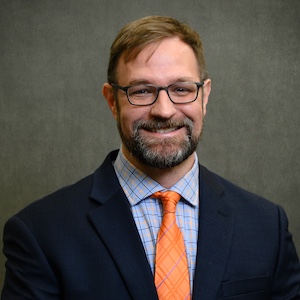
Deanna Sellnow, Ph.D.
Professor and Chair, Department of Communication
dsellno@clemson.edu
Deanna Sellnow serves as the chair of the Department of Communication. She joins Clemson from the University of Central Florida where she served as a professor of strategic communication in the Nicholson School of Communication and Media. As chair, she cultivates an environment of excellence in research, teaching and service and prioritizes the student experience so that all communication students are equipped with the knowledge and skills they need to be successful in their future endeavors. Her primary area of research focuses on strategic instructional risk and crisis communication in a variety of contexts such as natural disasters, health epidemics and pandemics, biosecurity, terrorism and agricultural biotechnology. She has conducted funded research for agencies such as the United States Geological Survey (USGS), the United States Department of Agriculture (USDA), the Department of Homeland Security (DHS), the National Oceanic and Atmospheric Administration (NOAA) and the U.S. Centers for Disease Control and Prevention (CDC). She has served as president of the Central States Communication Association where she was inducted into the Hall of Fame in 2018.
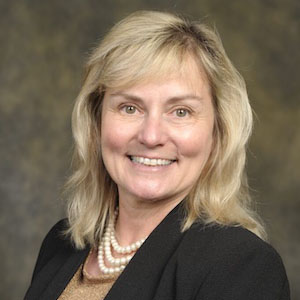
Bob Barcelona, Ph.D
Professor and Chair, Department of Parks, Recreation and Tourism Management
rbj@clemson.edu
Bob Barcelona, Ph.D., CPRP currently serves as Department Chair/Head and Professor in the Department of Parks, Recreation and Tourism Management at Clemson University. Dr. Barcelona’s research and professional interests focus broadly on increasing access to sport and recreation programs and facilities, and on improving the quality of recreation experiences through partnerships, planning, creative financing, staff training, and professional development. He is specifically interested in research that relates to access and constraints to public recreation opportunities and investigating the benefits of active recreation participation. Dr. Barcelona has partnered with the NH Department of Conservation and Natural Resources (DNCR) on numerous Statewide Comprehensive Outdoor Recreation Plans (SCORP), and has worked with federal agencies such as the U.S. Department of State’s Bureau of Educational and Cultural Affairs (ECA), Department of Housing and Urban Development (HUD), Department of Agriculture (USDA), and Department of Education on various research and program evaluation efforts. Dr. Barcelona also provides leadership for the Community Planning and Research Collaborative (CPARC), conducting community engaged research, strategic, and master planning with parks and recreation agencies throughout the country. Prior to working at Clemson University, Dr. Barcelona held faculty appointments at the University of New Hampshire and Indiana University and worked in collegiate athletics and recreational sports at the University of Mississippi and the University of California-Berkeley. He currently serves as the Chair of the Council on Accreditation for Parks, Recreation, Tourism and Related Professions (COAPRT), and is the Editor-in-Chief of the Recreational Sports Journal. Dr. Barcelona was inducted as a Fellow in the American Academy for Park and Recreation Administration (AAPRA) in 2019 where he serves as Chair of the Research for the Profession Committee.
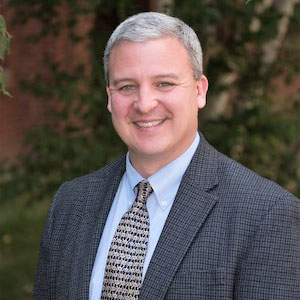
Joe Ura, Ph.D.
Professor and Chair, Department of Political Science
jura@clemson.edu
Joe Ura serves as chair of the Department of Political Science. As chair, Ura prioritizes the student experience, so all political science students feel empowered to contribute to their communities, pursue their passion and enter the workforce after graduation. Additionally, he fosters a culture of high-quality graduate education to equip students for careers in academia, public service and the private sector. His primary area of research investigates American national politics – specifically, how the United States Supreme Court interacts with public opinion, how and why public opinion changes over time and how public opinion impacts policies and elections. He earned a Ph.D. in political science from the University of North Carolina at Chapel Hill and both a bachelor’s degree and master’s degree in political science from George Washington University.

Pat Raymark, Ph.D.
Professor and Chair, Department of Psychology
praymar@clemson.edu
Pat Raymark has served as the chair of the Department of Psychology at Clemson since 2010. Prior to serving as chair, he served as the graduate program coordinator for the department. He originally arrived at Clemson in 1998 after spending several years as a faculty member at the Ohio State University. His research interests largely revolve around applied decision making within the context of personnel selection and evaluation. More specifically, he has conducted research investigating the decision-making processes used in employment interviewers, job analysis, and performance appraisal.
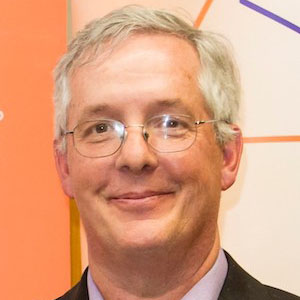
Wiley David Jenkins, Ph.D.
Professor and Chair, Department of Public Health Sciences
wileyj@clemson.edu
Wiley D. Jenkins serves as the chair of the Department of Public Health Sciences. He joins Clemson from Southern Illinois University School of Medicine where he served as Chief of Epidemiology and Biostatistics and Interim Chair of Population Science and Policy. Prior to SIU, he served with the Illinois Department of Public Health where he held roles in bioterrorism preparedness and laboratory management. His overarching research interests concern rural health and disparities, with specific foci including substance use, cancer risk and screening and sexually transmitted disease epidemiology. His work has been funded by the National Institutes of Health (NIH), the Centers for Disease Control and Prevention and its associated Foundation (CDC; CDCF) and health care and philanthropic organizations. He brings his transdisciplinary and translational perspectives to teaching and research and works to develop multifaceted programs of work that include community-based organizations, health care and social service advocates, funding agencies and partners, community members and academic researchers.
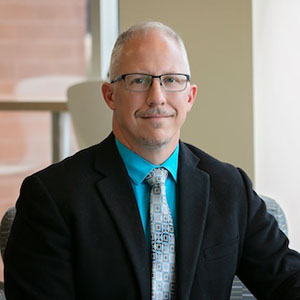
Katherine Weisensee, Ph.D.
Professor and Chair, Department of Sociology, Anthropology and Criminal Justice
kweisen@clemson.edu
Katherine Weisensee joined the Clemson faculty in 2008 and became chair of the department in 2018. Her research interests include human skeletal biology, forensic anthropology and morphometrics, and she currently teaches Introduction to Anthropology, Biological Anthropology, Forensic Anthropology, Human Variation and Human Remains Recovery. She earned a Ph.D. and master’s degree in anthropology from the University of Tennessee and a bachelor’s degree in anthropology from Brandeis University.
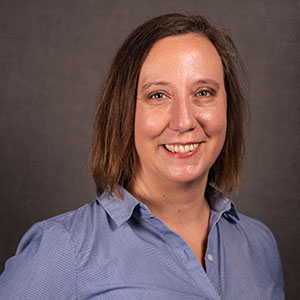
John Whitcomb , Ph.D.
Professor and Director, School of Nursing
jwhitco@clemson.edu
John Whitcomb is Director for the School of Nursing. He is a professor in the department and a faculty scholar in the Clemson University School of Health Research. Whitcomb brings over 38 years of critical care nursing experience to the position. Prior to Clemson University he served in the United States Navy for 26 years, both as enlisted and an Officer, retiring in 2009 as a Commander. He served as the Specialty Advisor to the Surgeon General, Critical Care Nursing having oversight of critical care nursing stateside, overseas and in combat during Operation Iraqi Freedom (OIF). He served as the Trauma Training Officer for the White House Medical Staff. His research focuses on the critical care setting, such as end of life issues, family visitation, functional status post cardiac arrest and cardiac arrest outcomes and the study of delirium in the critical care setting. He is a Fellow of Critical Care Medicine.

Ron Gimbel, Ph.D.
Professor of Public Health Sciences & Director of CBSHS Clemson Rural Health
rgimbel@clemson.edu
Dr. Gimbel is a former health administrator who transitioned into academia as a second career. He previously served as a faculty member in the School of Medicine at the Uniformed Services University of the Health Sciences in Bethesda, Maryland. Dr. Gimbel arrived in Clemson in 2014 where he served as Chair of the Department of Public Health Sciences through 2021. In July 2021 he transitioned from the department chair role to lead CBSHS Clemson Rural Health on a full-time basis, demonstrating Clemson University’s commitment to improving health equity and outcomes in underserved and rural communities. Dr. Gimbel is an active researcher focusing on projects that leverage technology to improve the quality of health services and patient outcomes.
